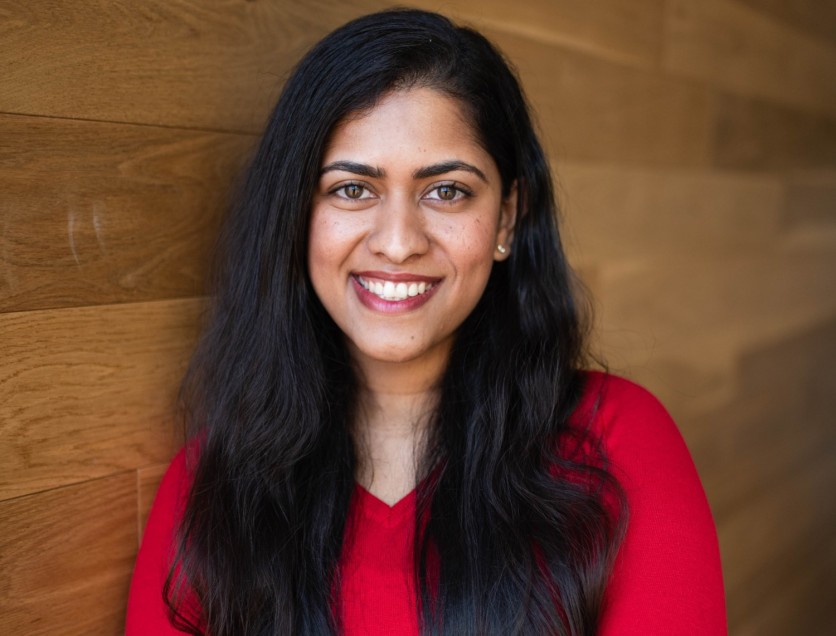
Customer-centric approaches include focusing on consumer needs and interests, as well as how to design products and services to meet those needs and foster positive customer experiences. Service and Experience Design expert Tapasya Kothapally excels in utilising human-centered research, strategy development, and user/voice experience design to solve complex problems, combining consumer needs with cohesive business strategies.
Q: Thanks for joining us today, Tapasya. For those who may be just meeting you, please share some of your educational background that has helped you become an expert in design.
A: I began my journey attending Mumbai University, where I earned my bachelor's in engineering. However, it wasn't until I got my master's in information science from Cornell University that I really began understanding problems from a customer and business perspective. I majored in human-computer interaction (HCI) and minored in Business Strategy, which has really helped me set the foundation for my journey.
After Cornell, I joined the Samsung team and worked on launching innovative products on their flagship phones. From Samsung, I moved to working with McKinsey and Company with various clients across industries. I have collaborated with clients in America and Asia, especially in India and Singapore. I have experience in banking, as well as consumer and real estate industries, helping businesses vet their digital products from research and conception to design and implementation.
Q: Thanks for sharing that. Since Cornell, what are some of the lessons you have learned on your journey?
A: My experience since Cornell has really helped me appreciate the value of a comprehensive approach to product strategy. I've learned and strengthened my skills in developing product strategies and user experience visions for disruptive products and platforms, especially regarding mobile devices—ultimately taking a holistic approach to product development that ensures every aspect of the product ecosystem is designed to meet consumer and user needs.
To me, solving business problems starts with understanding the root of the problem so that both driving customer adoption and generating sustainable revenue can occur. I have over eight years of experience, which has led me to focus more on generative AI and integrating AI into the design process, succeeding on multiple projects. This interest has helped me become a distinctive expert who has driven growth-oriented projects, innovating in the design of 0-1 products in the arrival of generative AI that is expanding across industries and functions. My skills in conceptualising, designing, and launching innovative products have helped me bring value across sectors that are increasingly seeking to leverage AI for innovation.
Q: That's very impressive. Has your increased knowledge fostered any opportunities you are particularly proud of?
A: Yes, I've enjoyed many memorable opportunities along my journey. I have acted as a mentor for programs such as Cornell UX Design, 3-Day Startup, and Cornell E-Cell, and I had the pleasure of designing and instructing a 12-week program for underserved communities through the E-Cell and Indian NGO Sampark Foundation. Most recently, I have been a judge for RX Health Hackathon 2024, organised by Cornell and powered by Next Jump and Johnson and Johnson.
Q: Along your way to becoming a successful entrepreneur and AI consultant, have you faced any challenges?
A: I think it's inevitable to face challenges in life. I've had to overcome many stereotypes that believe streamlined experience and service design is an academic, time-consuming, and cumbersome concept to implement in the real world. It's often viewed as a creative endeavour with limits, but there is strong evidence across global industries that proves the merit of design-centric services, products, and strategy.
I'm very much interested in designing for complex problems that tie in consumer/user needs. As a quantitative designer, I wanted to bring forth the business, the path to payments, and sustainable product value. I cite data and run quantitative and qualitative user research pilots to check design solutions' validity.
Today, Tapasya uses her strong expertise in design to implement conversational and generative AI across a host of products for banks, financial platforms, and direct-to-consumer products, making this well-rounded entrepreneur invaluable to businesses seeking solutions and success.
ⓒ 2025 TECHTIMES.com All rights reserved. Do not reproduce without permission.




